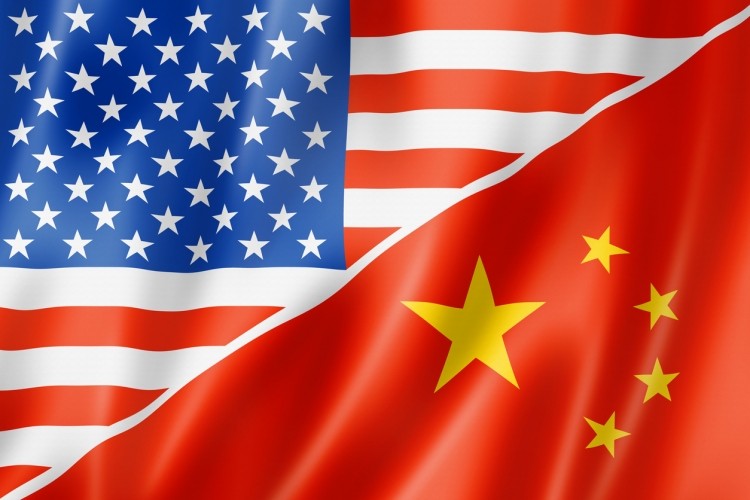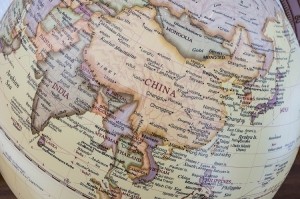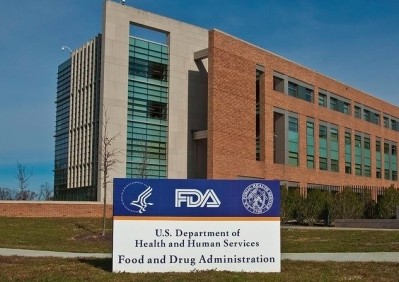UNPA builds bridge to help ease Chinese market entry

UNPA founder Loren Israelsen spoke to NutraIngredients-USA about an extensive contact-building and fact-finding tour in the country he took several weeks ago. He said he plans another multi-day trip after the turn of the year, with the goal to become better connected with this all-important market. China is not only the location of the world’s largest and fastest-growing middle class demographic segment, but is also the source of the lion’s share of dietary ingredients used in finished dietary supplements in many markets around the world.
Chinese ingredients form basis of ‘made in USA’ products
The focus on China is not a new fascination for UNPA, which is based in Salt Lake City and for many years had a Utah-centric focus. In 2011, the organization conducted a survey that delved into what American consumers understood about the supply of dietary ingredients. One of the key takeaways was that consumers in the US believed that a product that has a ‘made in USA’ message on the label would be made primarily with US-sourced ingredients.
The reality is quite different. According to the data UNPA gathered at that time, about 60% of the ingredients in supplements on the shelves in the US came from China. Another 13% of ingredients came from Europe, 12% from the US, 10% from Japan, and the remaining 5% from ‘elsewhere.’ The survey has not been repeated in the intervening years, but it’s quite likely that the percentage of ingredients coming from China has risen since then.
One of the goals of the survey was to determine if this could be a risk for the dietary supplement industry. How many consumers in the US would change their buying habits if they knew the truth? At that time, 63% of the respondents to the 1,000-participant survey said they’d be less likely to buy a supplement if most or all of the ingredients came from China. Whether consumer attitudes on the provenance of dietary supplements have moderated in the intervening years on that score is anyone’s guess. But one could easily assume that more Americans are now aware how much material flows out of China into consumer packaged goods of all kinds than was the case in 2011.
World’s largest market
Israelsen said the importance of the Chinese market cannot be overstated. According to the CIA World Factbook, China’s economy was second biggest in the world in 2016 at $21.29 trillion, but the biggest in the world when using a measure called Purchasing Power Parity. It surpassed the US economy in PPP in 2014. With a 2017 population estimated 1.38 billion, the country does not rank especially high globally on per capita basis, but it has a large and growing middle class that offsets the hundreds of millions of peasants and low level factory workers. Any company that seeks to be a major player in the dietary supplement industry in the coming years will have to have connections to and an understanding of the market, Israelsen said.
“We are really trying to better understand the fast changing consumer market in China. The country has an eager middle class of about 350 million people. It’s maybe the No. 2 market in terms of dietary supplements and in a few years they will be the biggest. They have the money to buy supplements and they certainly have the interest in them. As an industry, we really need to be thinking in terms of global consumers,” Israelsen said.
Partnership helps unlock market’s three-tiered nature
It is a confusing market to negotiate, though. While some other countries might have equally high or even higher barriers to entry for nutritional products (Brazil springs to mind), the labyrinthine nature of the Chinese regulatory system is really a beast unto itself. There are national-level considerations for initial market entry, but when it comes to actually getting distribution within the country, much happens at the provincial government level.

“Half of our trip was spent at the provincial level. You need to get the blessing of the federal government, but the real work gets done down at the provincial level. Then there are relationships with universities and local chambers of commerce. There are really three tiers of relationships you need to negotiate to be successful,” he said.
Sorting one’s way through all of that is difficult without a good local partner, Israelsen said. That’s why UNPA has forged a partnership with a relatively new organization known as the China Nutrition and Health Food Association.
“This is a new organization that was created in 2015. It is really a vehicle for the Chinese FDA to communicate with the outside world. This organization can help with registration and licensing requirements and can give recommendations on Chinese partners. It’s an easier way to understand how to sell in China and how to work with all levels of government,” he said.
FSMA changes the game
Israelsen said his organization, and others like UNPA, have a key role to play in this relationship by helping Chinese stakeholders understand the requirements of the US market. This is especially true now with full implementation of the Food Safety Modernization Act (FSMA), and its emphasis on vetting the safety of foreign food ingredients.
Questions have been raised for years about the quality of Chinese ingredient supply. Some factories are fully up to world food ingredient manufacturing standards, but many are not. And sources within the dietary supplement industry have criticized the ethics of some Chinese suppliers when material is found to be economically adulterated (though it must be observed that this is a two-way street; buying ingredients that are too cheap to be authentic implies a degree of collusion).
“The future of the relationship between the US and the Chinese markets really depends in great part on how quickly China is able to demonstrate a reliable record on food safety. That really means FSMA (the Food Safety Modernization Act),” Israelsen said.










